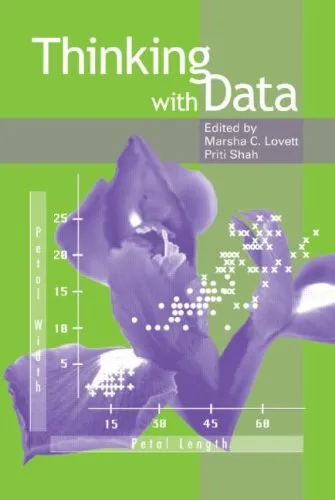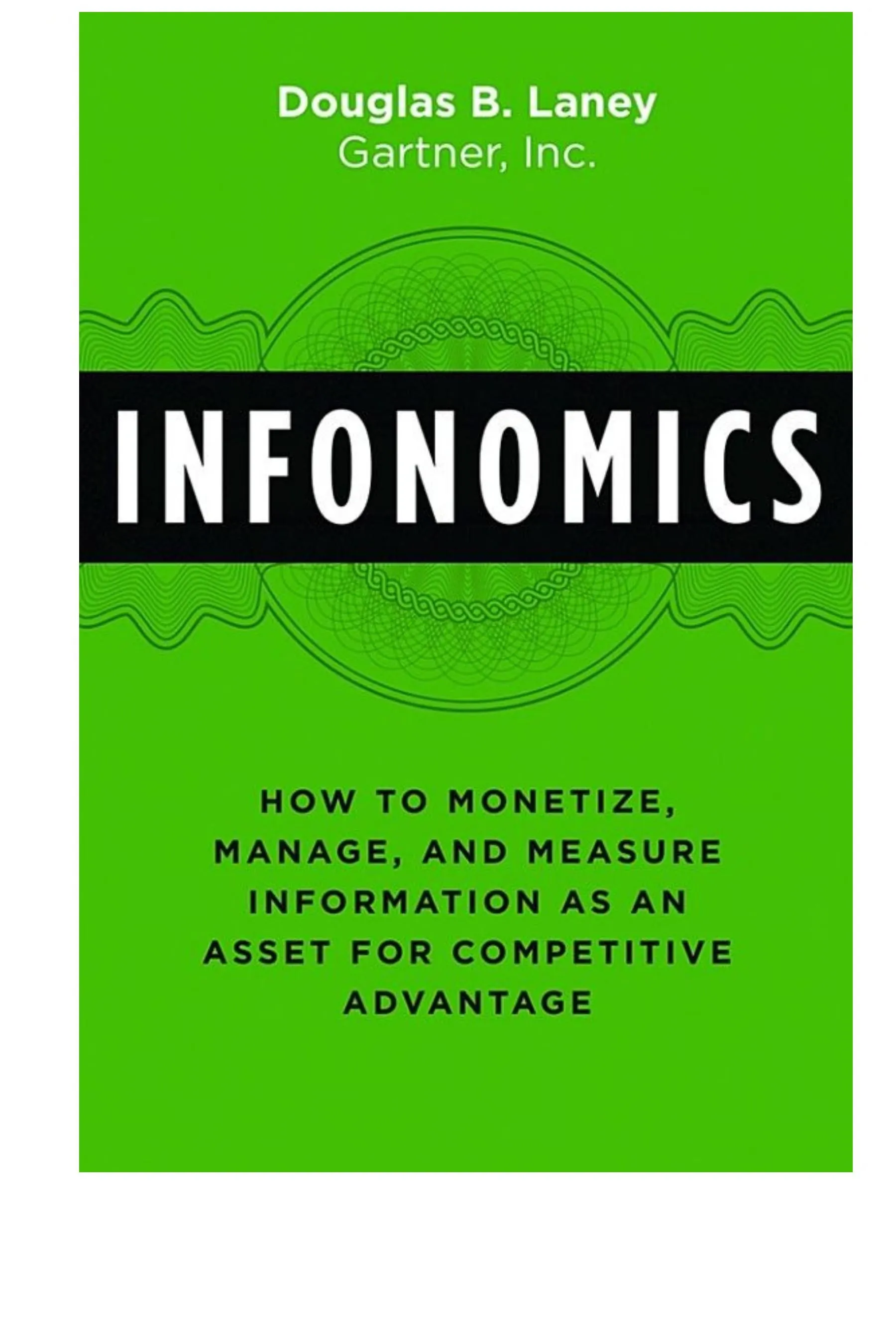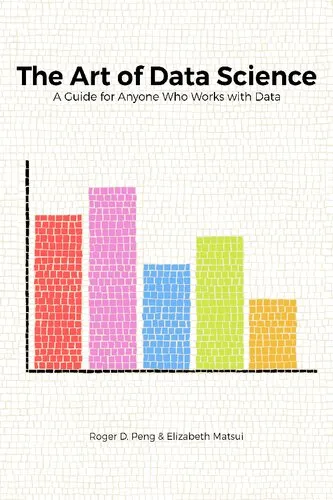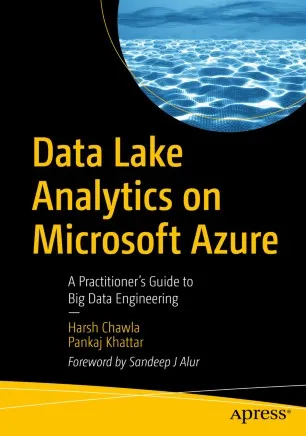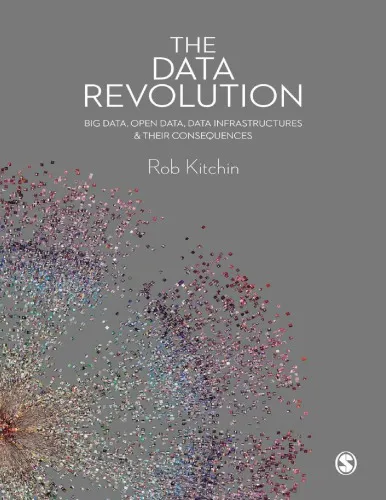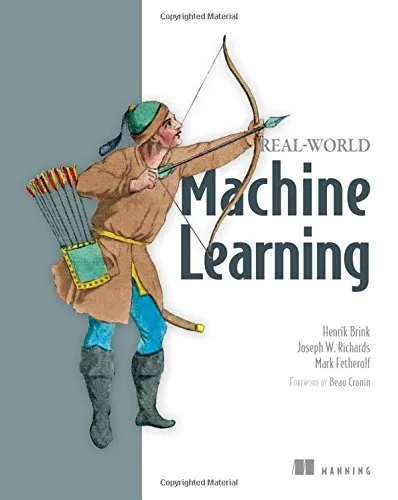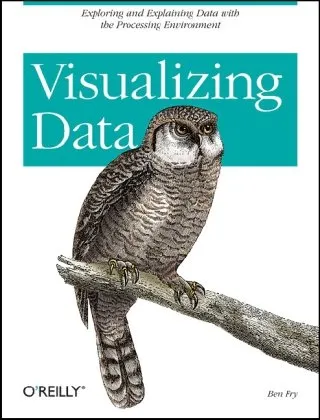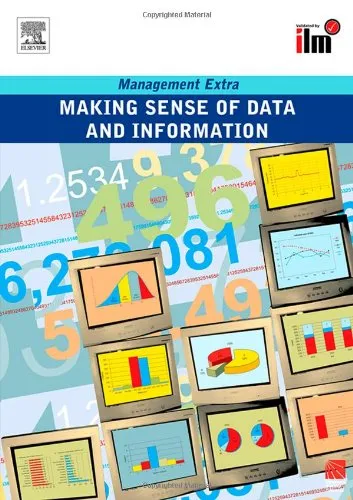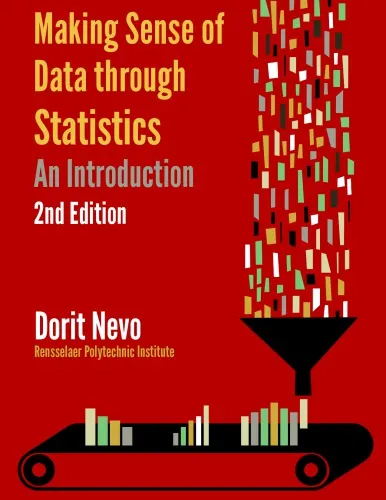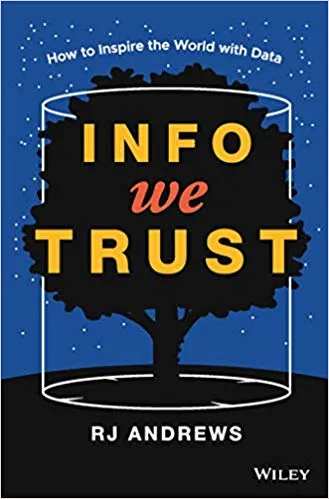Thinking With Data
4.0
Reviews from our users

You Can Ask your questions from this book's AI after Login
Each download or ask from book AI costs 2 points. To earn more free points, please visit the Points Guide Page and complete some valuable actions.Related Refrences:
Introduction to Thinking With Data
In an increasingly data-driven world, understanding how to think critically and effectively with data is a crucial skill for professionals, educators, and decision-makers alike. Published as a comprehensive guide, Thinking With Data equips readers with strategies, techniques, and concepts to navigate the complexities of working with data and extracting meaningful insights. Written by Marsha C. Lovett and Priti Shah, this book serves as a toolbox for thinking critically about data, asking the right questions, and interpreting results to make impactful decisions. In this introduction, let us walk through the essence of Thinking With Data and its enduring importance in modern life.
Detailed Summary of the Book
At its core, Thinking With Data is designed to help readers build a mindset and skillset for data-driven thinking. Unlike books that focus solely on the technical aspects of data, such as analysis or programming, this work emphasizes the cognitive and conceptual aspects of engaging with data. It addresses the art of framing the right questions, understanding biases, interpreting trends, and critically evaluating the trustworthiness of data sources.
The book’s content is structured around three main pillars: understanding how data operates in everyday contexts, learning to analyze data meaningfully, and communicating findings in a way that tells a compelling story. To achieve this, the authors highlight numerous examples from real-world situations, such as decision-making in business, education, and healthcare. By focusing on practical, scenario-based examples, the book ensures that readers grasp how to apply each principle in realistic circumstances. Readers are introduced to critical tools like probability, comparisons, and causality analysis to manage data complexity successfully.
Throughout the book, the authors emphasize the importance of iterative thinking: revisiting questions, refining hypotheses, and considering alternative explanations. The goal is not just to become skilled in crunching numbers but to develop the ability to think comprehensively and critically about what the data actually says (and, importantly, does not say).
Key Takeaways
- Ask the Right Questions: Effective data analysis begins with framing precise, relevant, and impactful questions.
- Recognize Bias and Assumptions: Awareness of cognitive biases and common pitfalls in interpretations is critical to sound reasoning.
- Focus on Context: Data does not exist in isolation. Evaluating the broader context and understanding its implications is vital.
- Iterative Thinking: Rethinking and revising conclusions iteratively can sharpen insights and improve decision accuracy.
- Clarity of Communication: Presenting findings in a clear and persuasive manner ensures that insights are actionable and effective for the intended audience.
Readers who engage with these takeaways will develop a stronger foundation for making data-informed decisions, whether in their personal or professional lives.
Famous Quotes from the Book
“Good data doesn’t guarantee good decisions, but good thinking does.”
“We rarely take data at face value—it is shaped by human decisions, both intentional and unintentional.”
“Interpreting data is not just about results; it’s about understanding the process that generates those results.”
“The power of iteration lies in its potential to refine, clarify, and enhance understanding.”
Why This Book Matters
In today's data-centric environment, decisions are increasingly made based on information derived from data. However, navigating the gray areas of bias, incomplete data sets, and misleading findings requires more than technical skills. It requires a disciplined way of thinking. This is what makes Thinking With Data an indispensable resource—it focuses on cultivating well-rounded, critical thought processes rather than providing a rigid checklist for analysis.
Written in an approachable tone with targeted examples, the book bridges the gap between those with technical expertise and those who use data to make decisions. It transcends industries, making it relevant to educators, policy-makers, analysts, and anyone seeking to improve their decision-making abilities in a data-driven age. By emphasizing clarity, practicality, and flexibility, the book equips readers to become effective thinkers in any situation where data plays a critical role.
The importance of this book lies not just in its content but in the mindset it fosters. By teaching us to think critically with data, we are better prepared to make decisions that are informed, ethical, and impactful. As data becomes a cornerstone of decision-making in the 21st century, Thinking With Data stands as a pivotal guide to navigating this landscape with confidence and clarity.
Free Direct Download
You Can Download this book after Login
Accessing books through legal platforms and public libraries not only supports the rights of authors and publishers but also contributes to the sustainability of reading culture. Before downloading, please take a moment to consider these options.
Find this book on other platforms:
WorldCat helps you find books in libraries worldwide.
See ratings, reviews, and discussions on Goodreads.
Find and buy rare or used books on AbeBooks.
1513
بازدید4.0
امتیاز0
نظر98%
رضایتReviews:
4.0
Based on 0 users review
Questions & Answers
Ask questions about this book or help others by answering
No questions yet. Be the first to ask!
